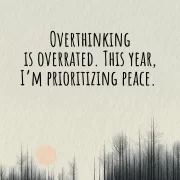Find out how much sleep you need at every stage of life with this expert advice on sleep needs by age.
Sleep is often called the “reset button” for the body and brain. It’s when your body repairs tissues, consolidates memories and balances hormones. It also strengthens your immune system, improves mood, and sharpens cognitive function.
Failing to meet your sleep needs can lead to immediate effects like irritability, fatigue, and poor concentration. Over time, chronic sleep deprivation increases the risk of serious health conditions, including heart disease, diabetes, obesity, and depression.
The key to better sleep lies in understanding how much you need. Let’s break it down, one life stage at a time.
Sleep Needs by Age According to Sleep Experts
1 – Newborns (0–3 months)
- Recommended Sleep Duration: 14–17 hours per day.
- Why It’s Important: Sleep supports the rapid physical and mental development occurring in a newborn’s first months. During sleep, their tiny brains build critical neural connections that influence learning, movement, and growth.
Newborns sleep in short bursts, typically two to four hours at a time, because they need frequent feedings. While they may not have a defined day-night schedule yet, this is a critical period for establishing the foundations of healthy sleep patterns.
Tips for Parents:
- Keep the environment quiet and dim to encourage longer sleep stretches.
- Use a swaddle to mimic the cozy feeling of the womb.
- Follow their natural sleep cues, such as rubbing eyes or yawning, to avoid overtiredness.
2 – Infants (4–12 months)
- Recommended Sleep Duration: 12–16 hours per day, including naps.
- Why It’s Important: Sleep during infancy is vital for motor skill development, memory formation, and emotional regulation. Babies also rely on sleep to boost their growing immune systems.
By this stage, infants start consolidating their sleep, with longer nighttime stretches and fewer daytime naps. However, teething or growth spurts can disrupt sleep schedules.
Tips for Parents:
- Create a bedtime routine that includes calming activities like a warm bath or lullabies.
- Introduce a consistent wake-up time to regulate their circadian rhythm.
- Ensure their sleep environment is free of hazards, such as loose blankets or toys.
3 – Toddlers (1–2 years)
- Recommended Sleep Duration: 11–14 hours per day, including naps.
- Why It’s Important: At this age, sleep promotes language development, problem-solving skills, and physical growth. Toddlers who don’t get enough rest may experience mood swings, tantrums, or difficulty concentrating.
Toddlers begin transitioning from two naps to one, which can temporarily disrupt their sleep routines. Nighttime fears or separation anxiety may also affect sleep quality.
Tips for Parents:
- Offer a comfort item, like a blanket or stuffed animal, to ease bedtime fears.
- Limit screen time in the evening, as it can interfere with melatonin production.
- Stick to a consistent bedtime routine, including brushing teeth and reading a story.
4 – Preschoolers (3–5 years)
- Recommended Sleep Duration: 10-15 hours per day, including naps.
- Why It’s Important: Preschoolers need adequate sleep to support behavioral regulation, academic readiness, and physical health. Sleep also helps them retain new information as they explore their expanding world.
Bedtime resistance becomes common during this stage, as preschoolers test boundaries. However, consistency remains crucial for ensuring they get enough rest.
Tips for Parents:
- Keep bedtime routines engaging but calming—try reading, talking about their day, or singing songs.
- Avoid sugary snacks or drinks before bedtime.
- Create a cozy and distraction-free sleep environment.
5 – School-Age Children (6–12 years)
- Recommended Sleep Duration: 9–12 hours per night.
- Why It’s Important: Sleep fuels academic performance, emotional stability, and physical growth. Children in this age group juggle school, sports, and social activities, making sleep even more essential for recovery.
Unfortunately, homework, extracurricular activities, and increasing screen time can push bedtime later, leading to sleep deprivation. Kids who consistently miss out on sleep may struggle with attention, memory, and emotional regulation.
Tips for Parents:
- Set a consistent bedtime and wake-up time, even on weekends.
- Encourage a wind-down period that includes reading or quiet activities.
- Reduce exposure to screens at least an hour before bed.
6 – Teenagers (13–18 years)
- Recommended Sleep Duration: 8–10 hours per night.
- Why It’s Important: Adolescents undergo rapid physical and hormonal changes that demand more rest. Sleep improves academic performance, emotional resilience, and athletic ability.
However, teens often face a shift in their internal clocks, known as delayed sleep phase syndrome, which makes them feel sleepy later at night. Combined with early school start times, this can lead to chronic sleep deprivation.
Tips for Parents and Teens:
- Educate teens on the importance of sleep for their overall health and performance.
- Limit late-night screen use and establish a relaxing pre-bedtime routine.
- Advocate for later school start times to align with teens’ natural sleep rhythms.
7 – Adults (18–60 years)
- Recommended Sleep Duration: 7 or more hours per night.
- Why It’s Important: Sleep is essential for maintaining physical health, mental clarity, and emotional balance. Chronic sleep deprivation in adults is linked to an increased risk of heart disease, stroke, obesity, and mental health disorders.
Adults often sacrifice sleep for work, parenting, or social activities, but this comes at a cost. Poor sleep habits can lead to reduced productivity, irritability, and long-term health consequences.
Tips for Adults:
- Prioritize sleep by setting boundaries around work and social commitments.
- Invest in a high-quality mattress and blackout curtains for optimal comfort.
- Use relaxation techniques like meditation or deep breathing to ease into sleep.
8 – Older Adults (61 years and older)
- Recommended Sleep Duration: 7–8 hours per night.
- Why It’s Important: Quality sleep supports cognitive function, physical balance, and immune health in older adults. It also helps reduce the risk of chronic conditions like Alzheimer’s disease and arthritis.
Sleep disturbances become more common with age due to health conditions, medication side effects, or changes in circadian rhythm. However, these issues can often be managed with proper care.
Tips for Older Adults:
- Address medical concerns, such as sleep apnea or restless legs syndrome, with a healthcare provider.
- Stick to a consistent sleep schedule to regulate your body’s internal clock.
- Create a relaxing bedtime routine, such as light stretching or reading.
How Sleep Affects Overall Health
Regardless of age, sleep is the cornerstone of optimal health. Here’s how it benefits your body:
- Boosts Immune System: Sleep allows your body to produce infection-fighting antibodies.
- Regulates Weight: Poor sleep disrupts hunger hormones, increasing cravings for unhealthy foods.
- Enhances Memory: During sleep, your brain processes and stores information.
- Supports Heart Health: Rest reduces stress on the cardiovascular system, lowering blood pressure.
Understanding your “sleep needs by age” ensures you reap these benefits, protecting your health in the long term.
Building Better Sleep Habits
Good sleep hygiene is the foundation of restful nights. Here are universal tips to improve sleep quality for all ages:
- Stick to a Schedule: Consistency helps regulate your body’s internal clock.
- Create a Sleep Sanctuary: Keep your bedroom cool, dark, and quiet.
- Limit Caffeine and Alcohol: Both can interfere with restorative sleep.
- Unplug Before Bed: Reduce screen time at least an hour before sleeping.
- Practice Relaxation: Try deep breathing, meditation, or reading to unwind.
Small changes to your routine can have a big impact on your sleep and overall health.
Final Thoughts
Sleep is the ultimate form of self-care. By understanding your sleep needs by age, you empower yourself to make choices that support your health, happiness, and productivity. Whether you’re a busy parent, a hard-working adult, or a growing child, prioritizing sleep is a non-negotiable part of thriving.
The good news? It’s never too late to improve your sleep habits. Start small, stay consistent, and notice the difference in your energy and mood.
Share this guide with loved ones and help spread the message: Better sleep means better health for everyone. Sweet dreams!
The post Doctors Explain Sleep Needs by Age: How Much You Really Need appeared first on Power of Positivity: Positive Thinking & Attitude.







